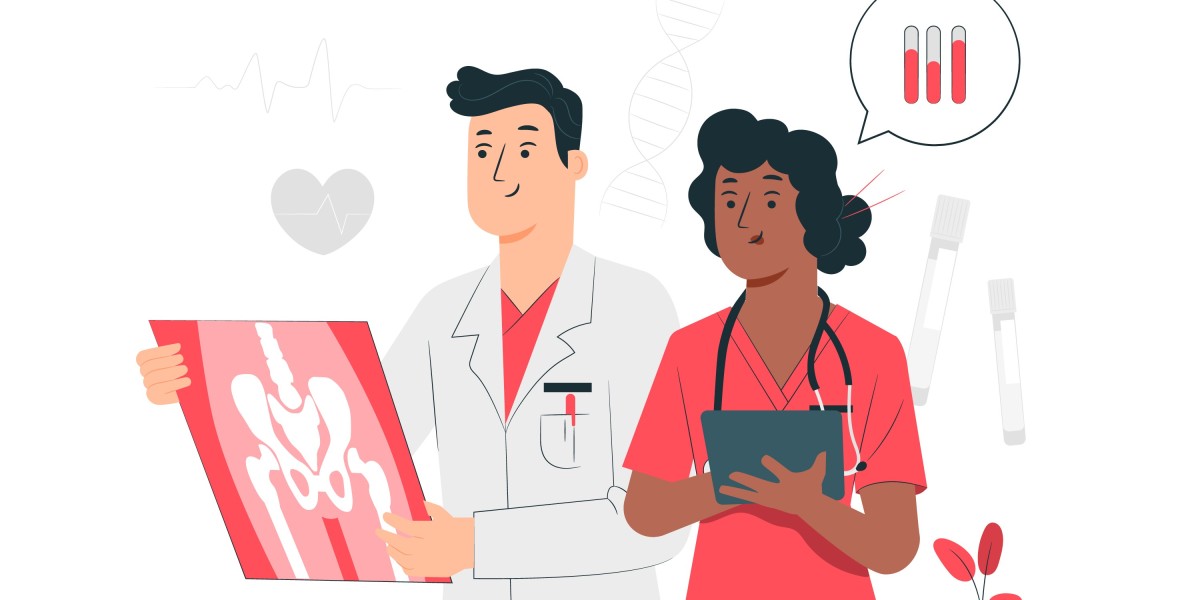Bone health is a vital component of overall well-being, yet it is often overlooked until problems arise. Early detection of bone loss can prevent serious health issues in the future. In Acworth, a bone health screening can be the first step toward maintaining strong and healthy bones. This article will explore the importance of bone health assessments and the medical services in Cobb County to keep your bones in top condition.
Bones play a crucial role in our bodies, providing structure, protecting organs, anchoring muscles, and storing calcium. However, bones are living tissues that are constantly being remodeled. As we age, the balance between bone resorption and formation changes, leading to a gradual loss of bone density.
The Dynamic Nature of Bones
Bones are not static; they are dynamic structures that undergo continuous renewal through the processes of bone formation and resorption. Osteoblasts are cells that create new bone, while osteoclasts break down old bone. This balance ensures that bones remain strong and resilient. However, with age or certain health conditions, this balance can be disrupted, leading to bone loss.
Factors Affecting Bone Health
Several factors influence bone health, including genetics, diet, physical activity, and hormonal changes. Genetics can determine bone density and the likelihood of developing osteoporosis. Nutrition plays a crucial role, as adequate intake of calcium and vitamin D is necessary for bone formation. Physical activity, particularly weight-bearing exercises, stimulates bone growth and strength. Hormonal changes, especially in postmenopausal women, can accelerate bone loss due to decreased estrogen levels.
Long-Term Consequences of Poor Bone Health
Neglecting bone health can lead to osteoporosis, a condition characterized by porous and fragile bones. This increases the risk of fractures, particularly in the hip, spine, and wrist. Fractures can significantly impair mobility and lead to a decline in quality of life. In severe cases, they can also result in long-term disability and increased mortality rates.
The Importance of Early Detection
Early detection of bone loss is crucial because it allows for timely intervention and treatment. Here are some reasons why a bone health screening is important:
Preventative Measures and Lifestyle Changes
Early detection can lead to lifestyle changes and medical interventions that can prevent osteoporosis. By identifying bone loss at an early stage, individuals can adopt healthier diets, engage in regular exercise, and make other lifestyle adjustments to strengthen their bones. Preventative measures may also include the use of supplements or medications to slow down bone loss.
Reducing the Risk of Fractures
Identifying bone loss early can help reduce the risk of fractures, which can have significant impacts on mobility and quality of life. Fractures can lead to prolonged recovery times and may require surgical interventions. By monitoring bone density, individuals can take proactive steps to avoid injuries and maintain their independence and activity levels.
Peace of Mind and Health Monitoring
Knowing the status of your bone health can help alleviate worries about future health issues. Regular screenings provide peace of mind by confirming whether your bone density is within a healthy range. Additionally, ongoing monitoring allows healthcare providers to track changes over time and adjust treatment plans as needed, ensuring optimal bone health.
Bone Health Screening in Acworth
Acworth offers several options for those looking to assess their bone health. A bone health screening is a simple, non-invasive test that can provide valuable information about your bone density and overall bone health.
What to Expect During a Bone Health Screening
During a bone health screening, a medical professional will use a specialized device to measure bone density. The most common method is a Dual-Energy X-ray Absorptiometry (DEXA) scan, which is quick and painless.
Preparation for a Bone Health Screening
Little to no preparation is needed for a bone health screening. However, you may be asked to avoid calcium supplements 24 hours before the test to ensure accurate results. It's also advisable to wear comfortable clothing without metal zippers or buttons, which can interfere with the scan.
The Bone Density Measurement Procedure
You will lie on a padded table while a scanner passes over your body. The scan typically focuses on the hip and spine, as these areas are most susceptible to fractures. The process is non-invasive, takes only a few minutes, and involves minimal radiation exposure.
Understanding the Results
The results will show your bone density levels and compare them to normal values for your age and gender. A T-score is provided, indicating whether your bone density is normal, low (osteopenia), or indicative of osteoporosis. Your healthcare provider will discuss the results with you and suggest any necessary follow-up actions.
Where to Get a Bone Health Check in Acworth
by smallbox (https://unsplash.com/@reoutput)
Several medical services in Cobb County offer bone health screenings. These facilities are equipped with the necessary technology and staffed by experienced professionals to ensure accurate assessments.
Local Clinics Offering Bone Health Assessments
Many local clinics in Acworth provide bone health assessments as part of their routine health check-ups. It's advisable to contact them directly to inquire about their services, availability, and whether a referral is needed from your primary care physician.
Specialized Bone Health Centers
Some centers specialize in bone health and osteoporosis, providing comprehensive services including screenings, consultations, and follow-up care. These facilities often have advanced diagnostic tools and offer personalized treatment plans tailored to individual needs.
Insurance and Cost Considerations
Before scheduling a bone health screening, it's important to verify insurance coverage and potential out-of-pocket costs. Many insurance plans cover bone density tests for individuals at risk of osteoporosis, particularly postmenopausal women and older adults.
Benefits of Regular Bone Health Assessments
Regular bone health assessments can be an integral part of maintaining overall health. Here are some benefits:
Monitoring Changes in Bone Density
Regular check-ups allow you to monitor changes in bone density over time, helping to identify any issues early. Tracking bone health over the years can reveal trends and guide adjustments in lifestyle or treatment plans to maintain optimal bone strength.
Receiving Tailored Health Advice
Based on your results, healthcare providers can offer personalized advice on diet, exercise, and lifestyle changes to improve bone health. Tailored guidance can maximize the effectiveness of interventions and help you achieve specific health goals.
Making Informed Health Decisions
With regular assessments, you can make informed decisions about your health and treatment options. Understanding your bone health status empowers you to engage in discussions with your healthcare provider and participate actively in your care plan.
Taking Action: How to Maintain Bone Health
While screenings are essential, maintaining healthy bones involves a proactive approach. Here are some tips:
Nutrition and Diet
A balanced diet rich in calcium and vitamin D is crucial for bone health. Foods like dairy products, leafy greens, and fish are excellent sources of these nutrients.
Calcium-Rich Foods and Alternatives
Dairy products such as milk, cheese, and yogurt are well-known sources of calcium. For those who are lactose intolerant or prefer non-dairy options, fortified plant-based milks, almonds, and tofu provide alternative calcium sources.
Importance of Vitamin D for Bone Health
Vitamin D is essential for calcium absorption and bone health. Sun exposure is a natural source of vitamin D, but it can also be obtained from foods like fatty fish, egg yolks, and fortified cereals. Supplements may be recommended for those with low levels.
Exercise
Regular weight-bearing and strength-training exercises help build and maintain bone density. Activities such as walking, jogging, and lifting weights are particularly beneficial.
Types of Bone-Strengthening Exercises
Weight-bearing exercises include activities such as walking, hiking, and dancing, which force you to work against gravity. Strength-training exercises, such as lifting weights or using resistance bands, increase muscle mass and improve bone density.
Incorporating Exercise Into Daily Life
Consistency is key to benefiting from exercise. Aim to incorporate physical activity into your daily routine, whether through structured workouts or lifestyle activities like gardening or taking the stairs instead of the elevator.
Lifestyle Changes
Avoid smoking and excessive alcohol consumption, as these can contribute to bone loss. Additionally, maintaining a healthy weight is important for bone health.
The Impact of Smoking and Alcohol on Bones
Smoking has been linked to decreased bone density and increased fracture risk. Alcohol, particularly in excessive amounts, can interfere with calcium absorption and bone formation. Reducing or eliminating these habits can significantly benefit bone health.
Maintaining a Healthy Body Weight
Being underweight or overweight can impact bone health. A balanced weight supports overall bone strength and reduces the risk of fractures. Focus on a diet and exercise plan that supports healthy weight maintenance.
Medication
In some cases, medication may be necessary to prevent or treat bone loss. Your healthcare provider can discuss options if needed.
Understanding Osteoporosis Medications
Several medications are available to treat osteoporosis, ranging from bisphosphonates that slow bone loss to anabolic agents that promote bone formation. Your healthcare provider will determine the best option based on your specific needs and health status.
Monitoring and Adjusting Treatment Plans
Medication effectiveness should be monitored regularly through follow-up bone density tests and consultations. Adjustments may be necessary to optimize treatment outcomes and ensure the best possible bone health.
Conclusion
Bone health is an essential aspect of overall well-being that should not be neglected. A bone health screening in Acworth can provide the early detection needed to prevent serious bone-related issues. By understanding the importance of bone health assessments and taking proactive steps in maintaining bone strength, you can enjoy a healthier, more active life. Whether you reside in Cobb County or the surrounding areas, consider scheduling a bone health check today to secure a future of strong and resilient bones.








